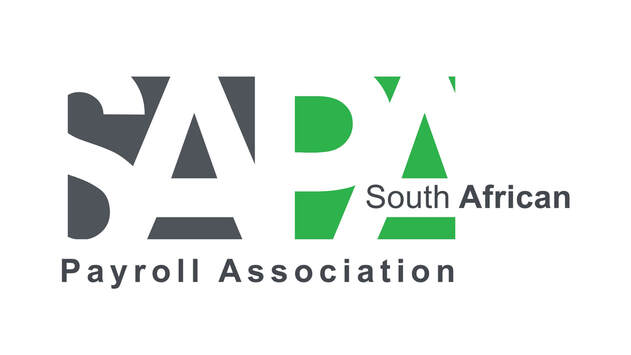|
As the year quickly draws to a close, the South Payroll Association (SAPA) has been inundated with queries regarding their expected annual bonuses in December.
Jethro Malapane, Executive Committee Member of SAPA, says that many of the enquiries stem from employees who don’t know if their bonus constitutes a thirteenth cheque or a performance bonus. “A thirteenth cheque is essentially an additional monthly salary paid, or 8.33% of the employee’s annual salary, that gets paid to the employee (normally in December or any other month depending on the employer’s contract.) A performance bonus, however, is based on an employee’s individual performance and it is subject to the employer’s conditions as stipulated in your employment contract,” says Malapane. Tax provisions and considerations A bonus amount becomes part of your total taxable income for the year, which may impact your tax bracket and tax provisions should be made. Malapane says that if your contract stipulates that you will receive a thirteenth cheque, then monthly contributions can be made as part of your salary deductions to offset the tax implications of the bonus. “A thirteenth cheque is a guaranteed extra amount that you need to make tax provisions for. Speak to your payroll department to adjust your monthly contributions so that you contribute towards tax each month. Doing this allows you to enjoy your bonus in full in December. If you haven’t done this for 2019, then speak to your payroll professional so that it is in place for next year.” It isn’t possible to make tax provisions for performance bonuses. “With performance bonuses being discretionary, it’s not possible to know how much money you must set aside for tax. The payment of performance bonuses is seldom guaranteed, and employees shouldn’t rely on the payment of these discretionary bonuses simply because they received the bonus over the past few years,” says Malapane. A shift to rewarding performance Many South African companies now offer employees performance bonuses instead of thirteenth cheques. Not only are performance bonuses seen as more motivating for employees, but these bonuses can be determined based on influencing factors such as how the company performed in the past financial year. “Companies have come to believe that offering employees a thirteenth cheque as part of their salary package creates a sense of entitlement surrounding bonuses. A performance bonus, however, allows companies to take stock of its financial performance before the money is divided on a departmental or individual level. High performers often find that they receive a salary increase as well as a performance bonus in December, which is obviously welcome news before the holidays,” says Malapane. He concludes by saying companies should create awareness about the types of bonuses – if any – they are offering employees. “Employees need more certainty on the type of bonuses they will receive as well as the tax implications of these bonuses. Employees should carefully read their employment contract so that they fully understand their remuneration at the end of each year and can make the necessary tax provisions.” ENDS MEDIA CONTACT: Rosa-Mari, 060 995 6277, [email protected], www.atthatpoint.co.za For more information on SAPA please visit: Website: http://www.sapayroll.co.za/ Twitter: @SAPayroll LinkedIn: The South African Payroll Association
0 Comments
The South African Reserve Bank and National Treasury have become aware of an increase in payroll deductions in recent years.
Stakeholders were engaged to create a regulatory framework to govern payroll deductions and the resulting proposal has led to three very limited options on how companies can govern employees’ payroll deductions. Arlene Leggat, President of the South Africa Payroll Association (SAPA), says that while the SAPA wasn’t consulted during the initial development of the Joint Proposal, it is now working alongside National Treasury to gain more insights on how companies are making deductions against employees’ salaries. This information will be used to inform policymakers on salary deductions that companies are making. The impact of the new payroll deduction options as per the Joint Proposal “The new payroll deduction regulatory options will have a vast impact on how payroll departments can make deductions. Employee rewards and benefits programmes often include salary deductions and reimbursements for everything from office-based gym memberships, canteen facilities and creche services to cell phone plans and travel schemes. If a company can no longer claim deductions, it not only affects payroll, but how the company attracts and retains talent,” says Leggat. In the recently published Joint Proposal by the SARB, there are three payroll deduction regulatory options: -Option 1 cites no access to payroll voluntary deductions; only statutory, court order, collective agreement and arbitration award deductions can be made against an employee’s salary. -Option 2 stipulates limited access to voluntary payroll deductions; enhance and adopt principles of the current regulations governing government payroll deductions. -Option 3 offers unrestricted access to payroll voluntary deductions. SAPA, together with the working committee from SA Reserve Bank, have designed a survey that enables companies to indicate how deductions from employee salaries are being made. This information will help inform National Treasury and the SARB on decisions regarding payroll deduction regulations going forward. Why does National Treasury need to clamp down on payroll deductions? Essentially, the offering of payroll deduction services provides preferential treatment to certain beneficiaries as their payments are processed before the remaining funds are transferred to the employee’s banking account. Only thereafter are other creditors or service providers allowed to collect on the remaining available funds. Leggat says there are cases where a person is required by a court of law to pay their debts but has no liquidity after all their payroll deductions. “Employee deductions have created a nation of employed people who are living in poverty. In the absence of an appropriate regulatory framework for discretionary or voluntary payroll deductions, employees remain vulnerable and susceptible to potential exploitation by unscrupulous employers and service providers,” says Leggat. Leggat concludes by saying that participation in SAPA’s survey can help the SARB and National Treasury develop a fair payroll deduction regulatory guideline. “We’re asking for transparency on what gets deducted from your employees’ salaries. This is your chance to highlight what services need to be included in the new guidelines.” The survey results will assist to accelerate the process of finalising the regulatory position on payroll deductions in South Africa. The survey can be found here: https://lnkd.in/d69k8Xm An explanatory note regarding the survey can be found here: https://lnkd.in/d-7gn8Y ENDS MEDIA CONTACT: Rosa-Mari Le Roux, 060 995 6277, [email protected], www.atthatpoint.co.za For more information on SAPA please visit: Website: http://www.sapayroll.co.za/ Twitter: @SAPayroll LinkedIn: The South African Payroll Association |
Welcome to the South African Payroll Association newsroom.
Archives
July 2020
Categories
All
|



 RSS Feed
RSS Feed